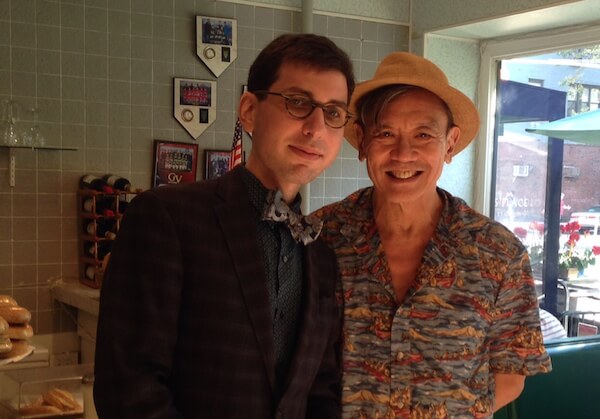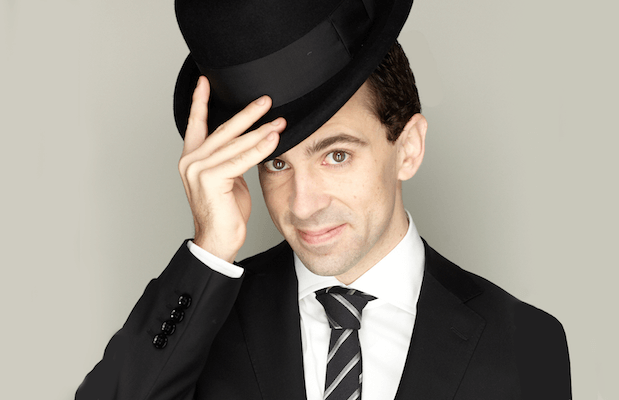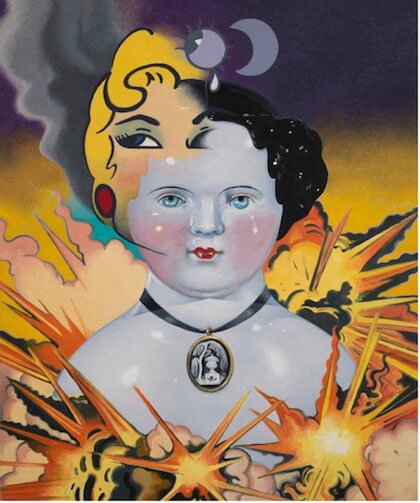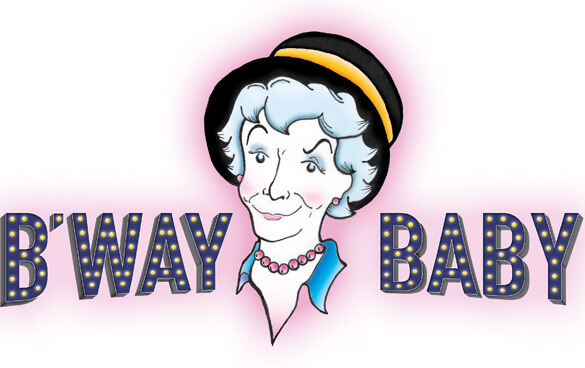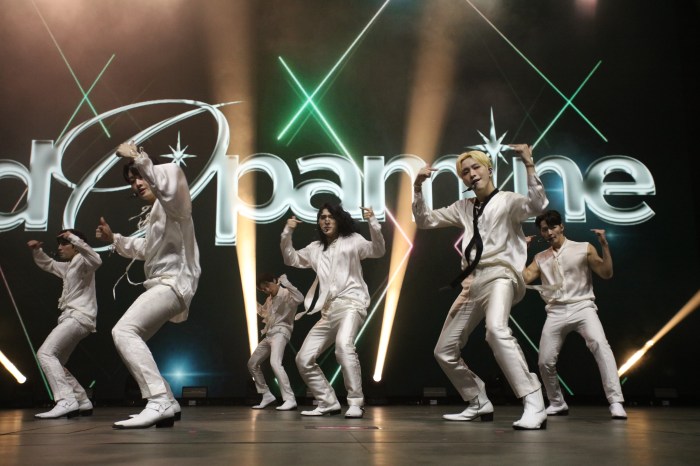Ellen Burstyn (r.) with Cybill Shepherd in “The Last Picture Show.” | BROOKLYN ACADEMY OF MUSIC
Few American actresses have been so honored or enjoyed such a lengthy and illustrious career as Ellen Burstyn, who at 81 shows no signs of slowing down. She works constantly and serves, with Al Pacino, as president of the Actor’s Studio, where she found her chops as a performer and still moderates classes when in town.
BAM Rose Cinema is celebrating her with a nine-film retrospective beginning April 30 (30 Lafayette Ave. at Ashland Pl.; bam.org), and I jumped at the chance to chat with her. Asked how she feels about the retrospective, she replied, with characteristic candor, “It’s great. Not too many people get this in the world, yet at the same time it makes me feel old.”
My favorite film of hers is 1971’s “The Last Picture Show,” in which, as the unhappy, adulterous mother of Cybill Shepherd, she glowingly came off like a Texan mixture of Jeanne Moreau and Anna Magnani. Telling her she also reminded me of Joan Blondell, I asked if she knew then that she was making an American classic with “Last Picture Show.”
Talent knows no age: glorious veteran, sparkling ingénue weigh in
“Joan Blondell? Oh, that’s funny. I’ve never been compared to her but remember really liking her. Talk about earthiness, huh?
“That was a fun character, not really fun, but I liked playing Lois, an interesting woman living an uninteresting life and how she had to bring vitality into it, which was a lesson. I remember the first day we all got together for a script reading in a Texas hotel room. We read through the script at a table and when it was finished there was a moment of silence. Then one actor, I don’t remember who, said, ‘You know, this could be a really interesting movie.’ There was that kind of surprise — wait a minute, what are we doing here? And as we went on we had more and more of a sense of how special it was. The script, the cast, the director — these were complex characters, not black and white, and I think Peter [Bogdanovich] wanted that and cast it in a way that he could realize his vision.”
Burstyn won the 1974 Oscar for “Alice Doesn’t Live Here Anymore,” the same year she won the Tony for “Same Time, Next Year” (the movie version of which won her a Golden Globe several years later).
“I was shooting ‘The Exorcist’ and the Calley brothers who produced it, saw the dailies and called my agent, ‘We’d like to do another movie with her,’” Burstyn recalled. “They sent me all their scripts, and they were either the loyal wife who stays home while the husband goes out and saves the world, or a prostitute or a victim. I said I wasn’t interested as it was 1973, the beginning of the women’s movement and I wanted to make a film more about women I knew. I found the script of ‘Alice’ and John [Calley] asked if I would like to direct it.
“I said I wasn’t ready to do that, but I wanted somebody new and exciting. I called Francis Ford Coppola and asked him if he knew of anyone, and he said, ‘Well, there’s this movie ‘Mean Streets,’ and I saw it and loved it, of course, and asked to meet with Marty Scorsese. He came up and I said, ‘I really like your film but can’t tell from it if you know anything about women because I want this told from a woman’s point of view. Do you?’ He said, ‘No, but I’d like to learn,’ and I thought that was absolutely the right answer.
“There was a lot of input that the actors did, especially from Kris Kristofferson. We improvised and added to Robert Getchell’s fine script. I felt it needed roughing up a bit, it was kind of smooth, so all along the way we were working on it with his approval, a real community effort.”
Did she have any idea that Jodie Foster would become such a showbiz powerhouse? “Not at all. She was just a little girl with long blonde hair going to school at Alliance Français, in a school uniform, very feminine and pretty. She always had an assurance about her, and when she turned up for the film she’d had her hair cut off and this tomboy emerged which we’d hardly been exposed to before, which added a very interesting element to the story.”
Burstyn’s rising fame in the early ‘70s didn’t give her any feeling that she was a golden girl who could do anything she wanted.
“I was kind of surprised, as it was all unfolding. I was in rehearsal for ‘Same Time, Next Year’ on Broadway when [‘Alice’] opened. It was so well received, and I thought, ‘Oh dear, I guess I’m famous, maybe even rich.’ I wasn’t sure what it meant but I was very committed to my work, which is why I didn’t go to the Oscars [Scorsese accepted for her]. I was appearing on Broadway, and it seemed to me that I shouldn’t miss a performance and should honor the work ethic as opposed to an award show. So I was very serious [laughs] at that time about acting and keeping my sense of ethics about what was morally right and not get carried away by the clamor of it all.”
I asked if she would do it that way again if she had the chance: “Well, if it was now, I could easily go to the Oscars and not feel like I had compromised integrity by missing a performance but then I was grappling with everything, trying to find what it meant to have that kind of big change in one’s life, and it seemed to me in order to stay stabilized that I had to do my work. I don’t know that I made the right choices at that time. I was interested in exploring woman as hero and not a stereotype, so I was kind of making choices on that.”
One choice she did make, which is in the retrospective, is Alain Resnais’ enigmatic “Providence” (1977), with an amazing cast of John Gielgud, Dirk Bogarde, and Elaine Stritch.
“Although I love the film itself, I’ve never been happy with me in it. When I saw it I realized I had played it wrong. I should have played the Gielgud character’s idea of a woman instead of mine. I should have thought more about what his creation would be like and I did my own creation. That’s the only time I had that experience of looking at myself on screen and saying ‘Wrong!’ It’s a terrible feeling.
“Gielgud was very elegant, lovely, professional, quiet, and introverted… Bogarde was a darling man and we became quite good friends, but an awfully heavy drinker so his memory was already affected and he had to have his lines written on his hand, the desk, ceiling, floor, and choreographed his looks because that’s where the words were. With heavy drinkers — and pot smokers — they lose their memory.”
A point that brought up the painful subject of Philip Seymour Hoffman, who had directed Burstyn in “The Little Flower of East Orange” in 2008. When I asked her about him, it proved too difficult and she broke down in tears. “I’m sorry, I can’t,” she said.
Awkward, but Fashion came to the rescue. I remembered that Yves Saint Laurent had dressed her magnificently in “Providence” and asked her about that genius. She brightened, and said, “He designed those clothes on me! He draped fabric and pinned it on me, an amazing experience.”
Talking about “Oldest Living Confederate Widow Tells All,” her Broadway show that closed after opening night, was thankfully no problem for her: “We played it in San Diego to standing ovations every night, and the girls who were working on costumes under the stage were afraid the ceiling was gonna come through from audiences stamping their feet. Then to come to New York and get hit by a howitzer in the face that way was quite something! Heartbreaking, but I just went to the Metropolitan Museum that day and looked at the Van Goghs and remembered that he only sold one painting in his life — and that was to his brother — to comfort myself. You just do your work and it’s either accepted or not and there’s really nothing you can do about it.”
‘[Film critic] Pauline Kael didn’t like ‘Alice,’ so I didn’t like her. Well, she praised the film but didn’t like me, and said, ‘She’s not exactly pretty, as a matter of fact, she’s kind of blubber-faced.’ That stung.”
Burstyn’s absolute favorite actor these days is Mark Rylance whom she described as “amazing, incredible.” Coming up for her is “The Age of Adeline,” a film with Blake Lively, “who’s a lovely girl. She’s got a lot of reality, a real human being. I did a pilot, ‘Old Soul,’ for Amy Poehler for NBC that’s awfully good, which she wrote and produced. Natasha Lyonne is the lead, with myself, Rita Moreno, Richard Benjamin, and Fred Willard. I play Natasha’s aunt, a woman who’s lived a lot, with different kinds of experiences, a sophisticated world traveler. It’s very funny and well written.”
USE NOH jessicaIS.jpgJessica Keenan Winn, currently starring in “Heathers: The Musical.” | DAVID NOH
From the moment Jessica Keenan Wynn walked onstage, playing ultimate arch-villainess Heather Chandler in the musical “Heathers,” I sat up and paid attention New World Stages, 340 W. 50th St.; telecharge.com). Not only was she deliciously pretty and filled with stage aplomb, her lovely, womanly voice was a wonderful change from the nasal or sexy baby-voiced ingénues that irritatingly litter show biz these days.
I had to ask her about her distinctive vocal pipes and she laughed, “That was always my problem getting into this business. I appeared like the girl next door ingénue and opened my mouth, and they’d say, ‘Oh! You’re very mature sounding, and wise even’ — which I thought was a little condescending. I had to wait until I got a little older so I could use it. Although I play a high school student, I kind of bring in that weight, and she’s so much fun to play. I have the best time and remember putting on the wig and costumes and thinking, ‘Oh, that’s who she is!’ It all came together, the little bitty skirts, high knee socks, and poufy blonde hair!
“I only saw the film ‘Heathers’ a year before I booked this. My generation was more ‘Clueless,’ but I was surprised by how dark and twisted it was. I was on tour with ‘Les Miz,’ saw the casting breakdown, and my agent sent a video submitting me for the [lead] role of Veronica. I thought okay, but I’m not really Veronica — I don’t really play dowdy and identify with playing the villain, taking that role and making it magical and real.
“I moved here from LA on January 7 and went into the long audition process, read for almost every role, including Veronica’s mom, and then they offered me Heather, a role I didn’t even read for! My heart stopped. I’d been in New York for two weeks and to have this great debut and enjoy the city and be able to pay for a drink!”
Another reason for my interest in this incredibly poised and intelligent actress is, of course, her last name, and yes, her grandfather was Keenan Wynn and her great grandfather, the legendary vaudevillian Ed Wynn.
“Yes,” she laughed, “I totally use it. My legal name is Jessica Armstrong, middle name is Keenan, but I decided to take Wynn because I wanted to pay homage to them. My grandfather made over 86 movies, an MGM contracted actor, Ed did radio, vaudeville, TV, and film, and we segue to Frank Keenan, who was his wife’s father. He was a first generation Shakespearean and silent film actor they called a furniture actor because he was a raging alcoholic and needed to hold on to the furniture to get across the stage.
“My grandfather had two sons, Ned and Tracy, with Evie Johnson, who later married Van Johnson. I use the name in auditions and it’s a great conversation piece. Keenan then married my grandmother, Charlie, at 18, and was with her until the end. I never knew Evie, but my grandfather and Van were best friends and maintained their relationship.”
Indeed, it was rumored that the actors were lovers and studio intervention demanded that Johnson, the teen idol of a generation of bobbysoxers, get married.
“Oh, I know, and I asked my mother, ‘Is it true?,’ Wynn said. “‘No, come on! Daddy?!’ I’m like I want it to be true so badly, so juicy! I love it, and didn’t something come up with him and Lee Marvin? My grandfather died when I was three months old but I know he’s around and probably to blame for this. I’m very lucky to have all these home movies and old classics, like that ‘Ziegfeld Follies’ bit with the telephone operator. Thank goodness my mother raised me on them — my favorite movie is ‘Meet Me in St. Louis’ — and I’m doing the same with my kids. ‘No video games! You’re gonna sit right here and watch Carol Burnett, ‘I Love Lucy,’ and ‘The Dick Van Dyke Show.’
“Even in ‘Heathers,’ after I die and come back, a little Katharine Hepburn sneaks in there, kinda in the way I talk. Someone said, ‘Jessica, are you a 1948 radio star?’ Yeah, maybe, and I’m okay with that!”
Contact David Noh at Inthenoh@aol.com, follow him on Twitter @in_the_noh, and check out his blog at http://nohway.wordpress.com/.




























